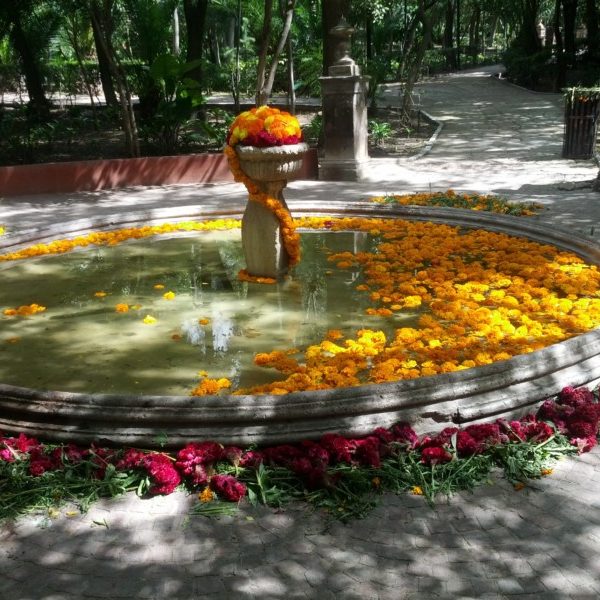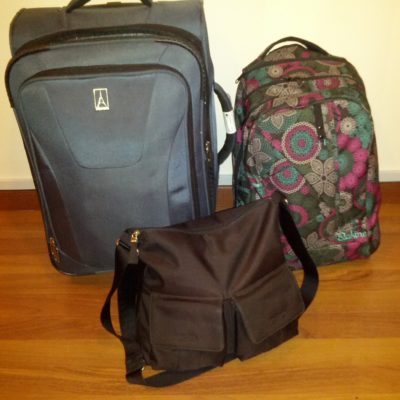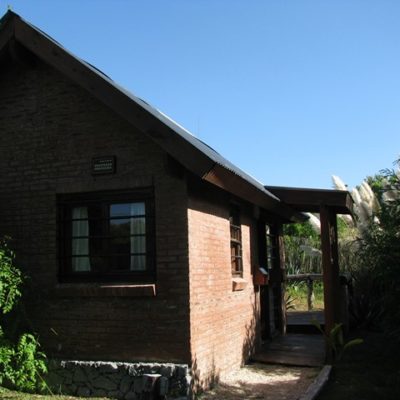
FAQ: What do you do for health insurance?
June 22, 2011 | FAQs, Travel Logistics, Well-Being
When people hear about my lifestyle, they normally have a lot of questions—either because they want to do something similar themselves and are trying to figure out all the details, or because they simply can’t imagine how this lifestyle really works!
In answering this FAQ, I wanted to do more than just share my own experience, so I brought in an awesome and varied crew of expert travelers, expats, and nomads to offer their own unique perspective.
What do you do for health insurance?

Amy Scott (founder of Nomadtopia), American, has been location independent since 2004, first as a long-term solo traveler, then an expat, and now as an editor and coach traveling the world as well as spending time in Buenos Aires, Argentina, her home base.
I took out travel medical insurance during my nine months spent traveling around the world, and I never once needed to use it. When I returned to the States I started working for myself, so I took out an individual plan in California—it served me well, but it always bothered me that it was tied to a specific location—I couldn’t keep the plan if I moved to another part of the country.
When I hit the road again, I bought another travel medical plan with MNUI (Atlas). After a period without coverage, I got another plan with IMG (Patriot).
Since I usually go back to the States once or twice a year, I like these plans because they both include an option for “home country” coverage for a certain amount of time per year. The insane cost of medical care in the U.S. was prime motivation to be sure I would be covered during my time in the U.S., even if it was a high-deductible plan.
When I didn’t have other coverage, I took out insurance with World Nomads for trips back to the U.S. If you’re a permanent resident of the U.S., double-check the coverage for trips to the U.S.; I believe it is only valid if you’re more than 100 miles from your “main place of residence.”
Since 2007 I’ve spent most of my time in Buenos Aires, where it isn’t outrageously expensive to pay for decent medical coverage out of pocket (and there are also free public hospitals), so I have used the free hospital or paid for the occasional doctor’s visit myself because the travel-medical plans are high deductible.
Just last month I finally decided to get local insurance, which is a refreshing breath of fresh air compared to all of the other plans I’ve had—it covers nearly everything, has no deductible at all, and there are no maximums on how much they’ll pay out if needed. It has a low level of international coverage, though, so when I go abroad I often supplement with a short-term plan from World Nomads.
Once Roberto (who’s Argentine) and I get married next year, I’ll be able to get on his insurance for free, but we’ll likely have to come up with some creative international solutions once we hit the road again.
UPDATE September 2013 (and still true in 2016): Roberto quit his job shortly after we got married, so I never got to use his insurance! Now that we are back on the road, we have comprehensive international insurance through Integra Global (excluding U.S. and Canada). We supplement this with World Nomads whenever we go to the U.S. or Canada.
UPDATE July 2017: We’ve recently switched to WEA Direct, which offers better coverage for our current needs (and covers us in Canada but still not the U.S.).

Corbett Barr and his wife, both Americans, spend six months traveling each year, and the other six months in their “home base” in San Francisco.
For health insurance my wife and I have an independent high-deductible plan based in California, where we live most of the year. The plan costs around $200/month total for the two of us, but doesn’t cover much until you exceed the high deductible amount.
In the past, when we have traveled to another country for a long period of time, we have purchased supplementary travel health insurance, which would pay to transport us back to the U.S. in certain emergencies.

American citizen Karol Gajda has been traveling in perpetuity since September 1, 2009.
I use HTH Worldwide (Aetna). It works anywhere in the world and costs $167/month although it is high deductible. I have used it, but it was in the US. I’ve had it ~4 months. I switched because my other insurance was not as useful worldwide, which matters when you’re traveling. 🙂

Lea Woodward is originally from the UK and has lived a permanently nomadic lifestyle since 2007 living and working from Panama, Buenos Aires, Grenada, South Africa, Thailand, Turkey, and more. She’s currently based in the UK for a year to give her two-year-old daughter a sense of “home” before more plans to hit the road permanently.
We have worldwide health insurance—through BUPA—which means we can get private medical treatment wherever we go. Depending upon where we are, however, we don’t always claim on the insurance—especially if treatment is affordable and it’s simpler to just pay cash (e.g., in Thailand, South Africa and other countries).

Natalie Sisson is a Kiwi Suitcase Entrepreneur and Adventurer who travels the world finding creative ways to run her business from anywhere. You can find her on trains, planes, buses, cars, boats and in cafes around the world. Or on Twitter @nataliesisson.
Since the age of two I’ve been travelling the world thanks to my family and have grown an ongoing love affair for travel adventures. Despite my dad being a top-class insurance salesman, I recall him never insuring our family for much at all. I’m not sure if that’s just carried over to me, or whether I really don’t see the value in it.
Unlike the North American obsessed culture of insurance, medical protection and suing, I come from a perspective that you just need to protect what’s most important to you. Despite the fact that I live out of a suitcase and laptop bag, and that my entire belongings are in it, I don’t tend to take out travel insurance much these days.
Although some people may be shocked at that, and the fact that I have no medical insurance, you learn the rules of travel pretty quick. In the 45 countries I’ve visited I have never lost a thing. I’ve had several things stolen but none of them of a value so high I’ve been devastated. Everything can be bought and replaced at the end of the day, and I subscribe to the less is more philosophy.
I do however take out travel insurance that includes medical coverage when I’m going to slightly more exotic or dangerous destinations. Like when I travelled in South America for six weeks I got my shots and vaccinations plus insurance costing all of $30 to see me through.
I don’t think it’s necessary when I’m travelling in Europe, North America or Australasia. I’ve also learned that in some countries you can apply in retrospect for health insurance—such as Canada, depending on whether you’re a visitor or temporary resident. So I took the risk of doing dare-devil stunts while skiing on the slopes of Whistler with the knowledge that if I broke an arm or leg and was hit with a CAN $10K bill, I could write that off by showing proof of my insurance plan I applied for after the accident. Cheeky I know, but why pay when you don’t need to? (Caveat to that is if you have health problems then it’s a no brainer to get insurance.)

Caz and Craig Makepeace are Aussies who have been living and travelling around the world since ’97, solo, as a couple and now with children. They share their tips for around-the-world travel as well as stories and inspirations on their travel blog and world travel podcast. Check out Amy’s conversation with Caz on Nomadtopia Radio here.
Making a decision about health insurance is always dependent upon the country I [Caz] am living in at the time and how I am living there. When I lived in London there was National Health Insurance so I did not have to worry about purchasing any extra. When I lived in Thailand and Dublin, I did not worry about getting any health insurance. I was young and healthy and I had travel insurance to cover me “just in case.”
In the US, we had to have health insurance in order to live in the country under our J1 visas. The company who sponsored me also gave me subsidised health insurance which helped to relieve the burden of its high cost.
Now that we have children, we will be taking health insurance a little more seriously. We are back home in Australia and so will have to evaluate where we go next and what options are available to us for health insurance. I am thinking that we will just have to rely on travel insurance to cover us.

Tom Frost is an independent long-term expat from the United States now living in China. He is married to author Maya Frost [check her out on Nomadtopia Radio] and has four adult daughters who live in New York City, Abu Dhabi, and Buenos Aires. He writes periodically on the blog ExpatAlley.
Since I have been a married American with children most of my adult life, health insurance coverage has been a constant and expensive pain in the a** while living in the US. I was thrilled when we moved abroad and found cheaper and better options.
Our first year outside of the US was spent in Mexico. We bought travel insurance through World Nomads for about $100 per month for our family of six. However, we never used it since medical care in Mexico is very affordable. For anything we needed we simply paid out of pocket. One experience required a chest x-ray, EKG and 30-plus minutes with two specialists. The cost was less than $75.
Our next three years abroad were spent in Buenos Aires, Argentina. We bought a private health insurance policy (OSDE) which cost about US$200—but it covered everything, including dental. By the time we left Argentina in 2010 the monthly premium had increased to over US$350 for our family of six. All of our experiences with the medical system in Argentina were positive.
2010 was spent in Uruguay, where we bought a plan offered by our local hospital. The cost for my wife and myself (we were empty-nesters) was $120 per month and included dental. The hospital was modern and clean and the physicians seemed very good though we never required care.
2011 found us in Japan and our jobs included national health insurance coverage which was $65 per month for both of us. Though we never used the services, our experience with the medical system in Japan in the eighties was very positive (our first two children were born there).
Now we are traveling independently and are back on the World Nomads policy which costs about US$100 per month for both of us. We will be working in China so will likely get a Chinese policy.
Our general approach to insurance abroad is to use World Nomads for a month or two to give us time to investigate policies and medical care. If the local insurance is affordable we will get a policy. Our back-up plan for anything serious is to fly to a country where medical care is of good quality and affordable (Mexico, Thailand, Argentina). In our experience in the countries mentioned (plus Malaysia, Thailand, and India) pharmaceuticals are a fraction of the cost of the US and most can be purchased easily.
There are good doctors and bad doctors everywhere. There are good hospitals and bad hospitals everywhere. There are good insurance policies and bad insurance policies everywhere. Using common sense and not falling prey to fear-based assumptions of health care abroad will allow you to pick and choose your best option while living as a long- or short-term expat.
Tom’s last comment is a great way to wrap up this post. Many people find that health care abroad is frequently more affordable and just as good as what they’re used to at home, and all of the varying approaches described here emphasize the importance of finding what works best for you, your situation, and your level of risk tolerance.
Thanks to all the participants for their great answers!
Get the Top 10 Logistical Things You Need to do before becoming a nomad
(That Aren't What You Think)
When you download the guide, you’ll also be subscribed to the Nomadtopia newsletter. Your email is safe with me and you can unsubscribe anytime. View our Privacy Policy.




